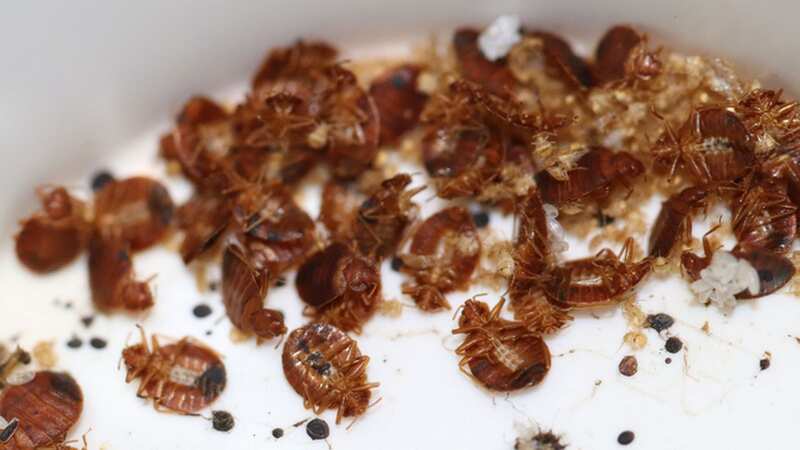Russian trolls could have sparked bedbug panic in France, says intelligence

Russian trolls could have sparked panic over a bed bug outbreak in France, according to intelligence services.
The French capital has reportedly been plagued by the pests, which feed on the skin of residents and hotel guests alike. On one particular street, Rue Saint Lazare in the city's 9th district, dumped mattresses were seen lining the pavements with some covered in plastic.
Some of the furniture was clean while others were dirty, suggesting a possible clear out. In August, a woman tweeted pictures of what she said were markings on her body from bed bugs in her seat at a Paris cinema.
The issue was also reported to be causing havoc on the trains, with viral videos being uploaded to social media of what appeared to be bedbugs on seats of the Paris metro. Meanwhile, Paris’s deputy mayor, Emmanuel Grégoire, warned that "no one is safe" as the infestations appeared to continue to rise.
He even wrote a letter on behalf of City Hall, calling on Prime Minister Elizabeth Borne to "enact an action plan appropriate to this scourge". The apparent infestation led to fears that the UK could face a similar invasion of mutant "super" bedbugs, with Eurostar introducing "preventative measures" to tackle the problem.
 'Council had to move us from our flat because of bedbugs – it was horrific'
'Council had to move us from our flat because of bedbugs – it was horrific'
Sophie Marie Niang, who lives between Paris and Cambridge, England, where she is studying, told NBC News that the infestation makes you feel that "everything is going wrong" for the city ahead of the Olympic and Paralympic Games next year.
But doubt was cast over the apparent infestation after French Transportation Minister Clément Beaune held a crisis meeting earlier this month, looking at 37 cases reported to railway firm SNCF and a dozen to Paris’ public transport operator RATP. He said all had been investigated and "zero are proven".
Now, French intelligence agents quoted by RMC Radio say they are "taking seriously" and "strongly suspect" the idea that Russia sought to spread fears through a disinformation campaign targeting multiple newspapers. They accused the country of sharing so-called "doppelganger" articles online that mimic respected outlets to dupe internet users.
Two such articles were identified by the Associated Foreign Press fact-checking body, reports The Telegraph. One, which appeared to be published by regional paper La Montagne, alleged that effective insecticides used to kill bed bugs were breaching an embargo on Russia chemicals.
However, La Montagne told AFP Factuel that it had never published the article and branded it a "forgery", with AFP noting that bed bugs have been in the country long before heavy sanctions were taken against Russia following its invasion of Ukraine.
Another article was supposedly written by Left-leaning French newspaper Libération, and was shared by a Telegram account linked to Russia Today - a major propaganda outlet for the Kremlin. It claimed that the surge in bed bugs was due to Ukrainian refugees.
A similar story was shared by a page purporting to be conservative daily paper Le Figaro. It is not the first time that "doppelganger" articles are thought to have been spread by Russian trolls - in 2021, France set up an agency called Viginum to try and spot such distortion of information from outside the country.
And earlier this year, French Foreign Minister Catherine Colonna condemned a disinformation campaign which shared pro-Russian content. According to Agence France-Presse, she said at the time: "The involvement of Russian embassies and cultural centers that actively participated in amplifying this campaign, including via their institutional accounts on social networks, is a further illustration of the hybrid strategy Russia is implementing to undermine the conditions for democratic debate."
Read more similar news:
Comments:
comments powered by Disqus

































